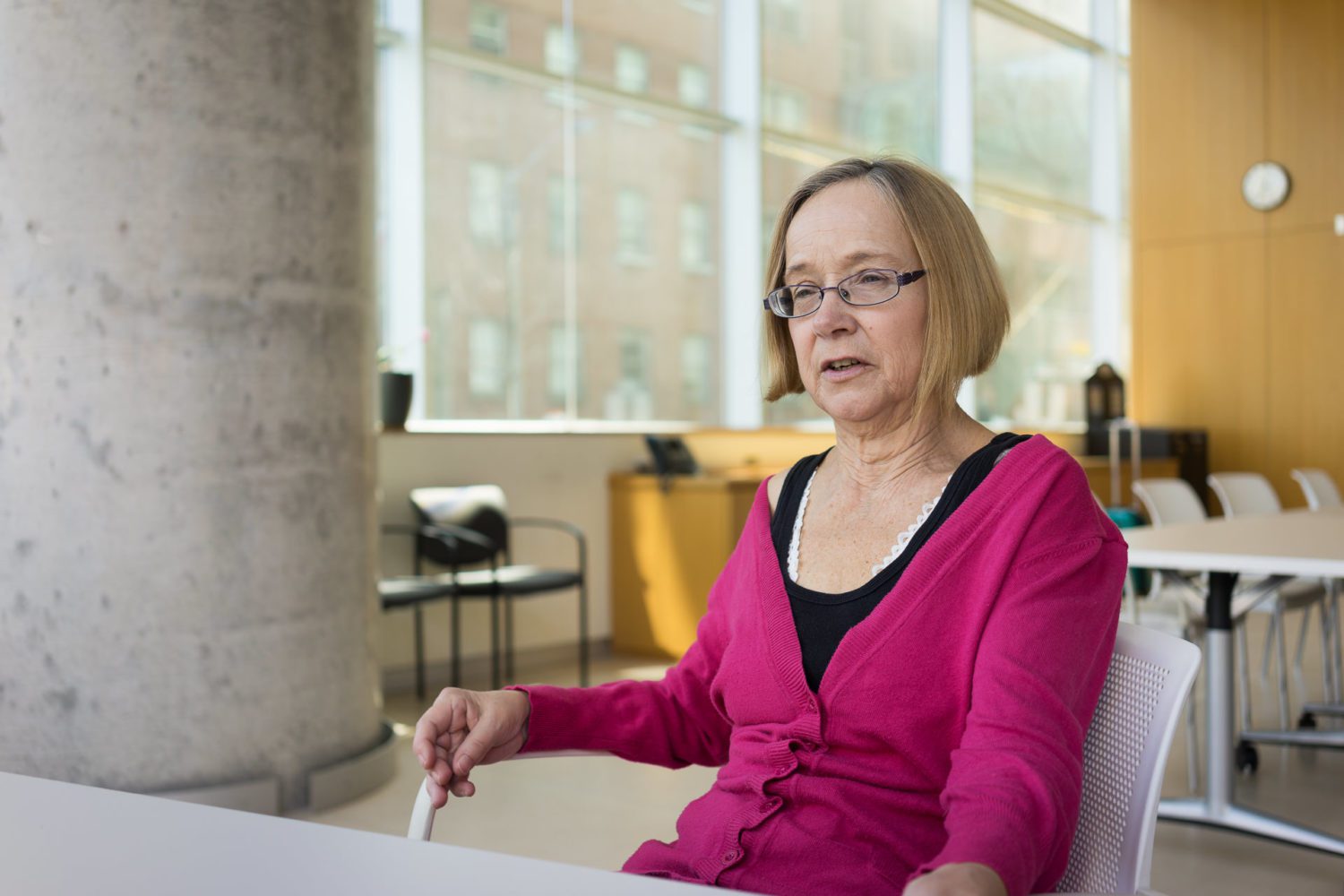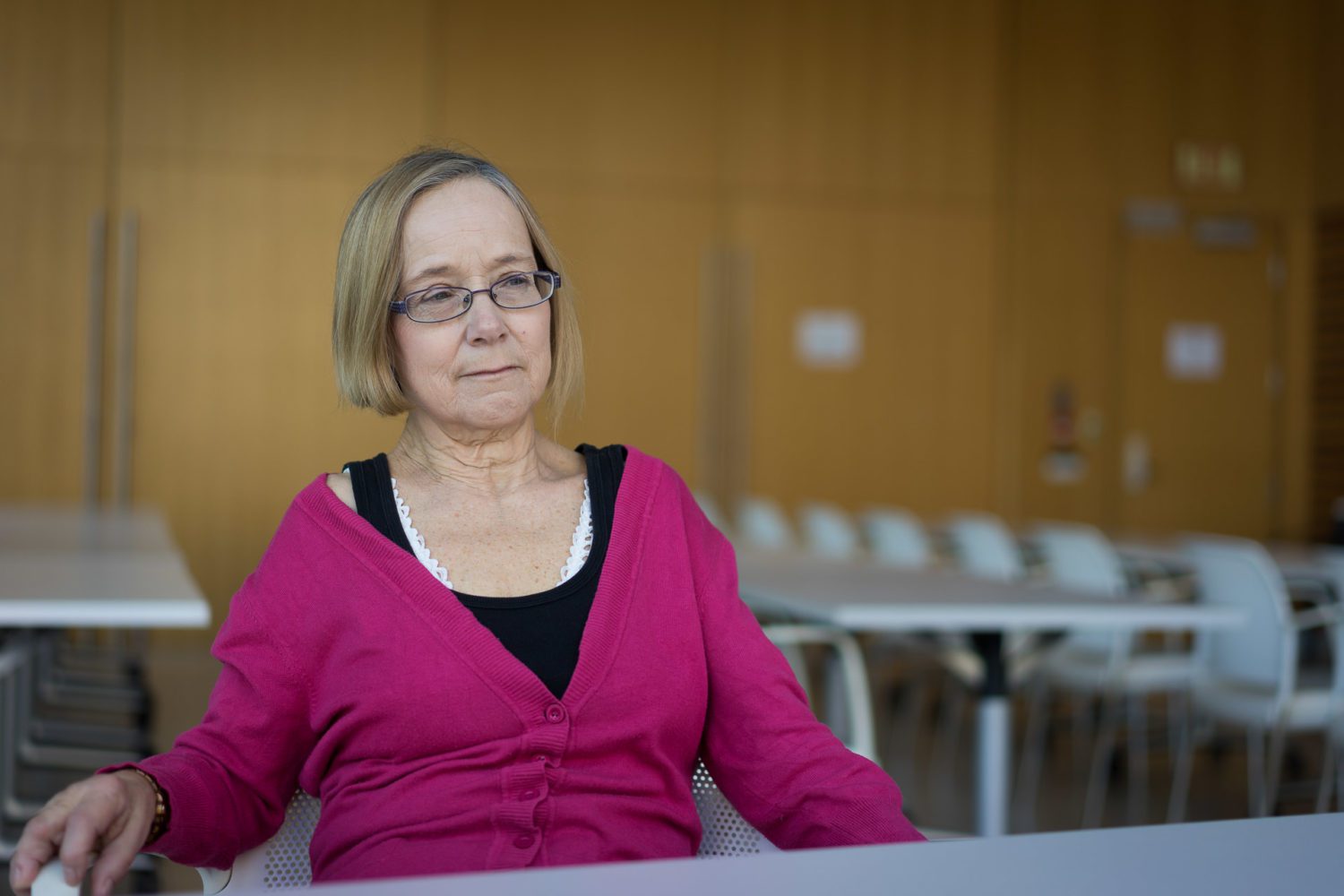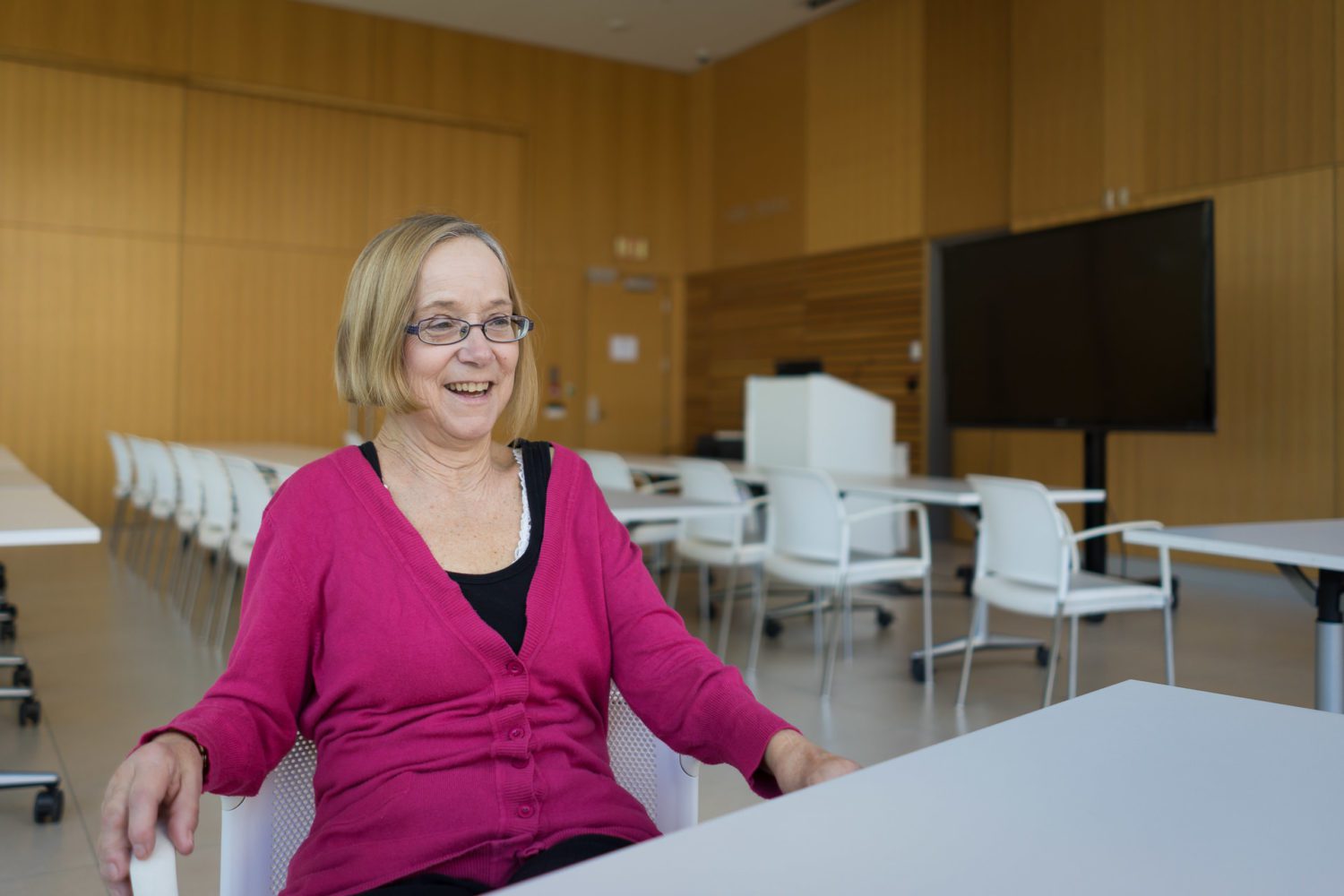Linda had to fight for funding for a new drug after every other drug failed. At the time, she was wheelchair-bound, caring for two children. She talked about how her anger drove her into health care research and advocacy — and why denying someone a drug can actually lead to greater health system costs.
“I was diagnosed with rheumatoid arthritis when I was 23. I had a two-year-old and a newborn baby at the time. Over the years, I have gone through lots of different treatments that didn’t work very well for me. I ended up in a wheelchair and was in a holding pattern waiting for a new drug – I had gone through every drug available.”
“In 1999, I was in the hospital for three-and-a-half months because I was recovering from an ankle fusion and couldn’t walk. I had three young kids at home. That was when they finally gave me special access to the biologic drugs. They had been saying ‘No’ for about a year because they said rheumatoid arthritis wasn’t serious enough a disease to get special access to an expensive new drug. Finally, I took a leave from the hospital to meet with provincial politicians. My husband had to carry me in, and he cried in the meeting. People were very moved. After that, our member of legislative assembly put a letter on the premier’s desk.”
The hospital administrator intervened too, saying ‘Give her the drug!’
“While in the hospital, I was given coverage for the $1,500 drug. Within a week and a half of starting the biologic, I walked out of the hospital. I needed a walker, but I was on my own two legs for the first time in over a year!”

“Given that you were in a wheelchair how could they say you didn’t have a serious disease?”
“I have no idea! That’s what I was told every time my rheumatologist applied for special access to a new drug.”
“There was a provincial election and the Member of the Legislative Assembly came around and I said I needed access to one of the new drugs. This was before I was in the hospital for those three months. She very condescendingly more or less patted me on the head and said, ‘You know, this is such a complicated process and you likely wouldn’t understand it.’ Well, that really angered me and motivated me to get involved in identifying research priorities and in health policy.”
“Once, I was at a meeting and met a Health Canada reviewer who said he could see this new program for faster access to drugs becoming available for people with cancer or HIV, but absolutely no way for rheumatoid arthritis. There had just been a publication that showed that more Canadians were dying from the effects of arthritis and related conditions than HIV, partly because people with HIV were getting new drugs and we weren’t. So I quoted that to him. I think I shocked him.”

“The biologic drug I had been given access to wasn’t supposed to be prescribed to outpatients with rheumatoid arthritis in New Brunswick at the time. The drug worked so well for me that there was no way that I was going to jeopardize my access to it by complaining that the government wasn’t paying for drugs for people who needed them. As a patient, you’re vulnerable. But then my insurance picked it up, and that’s when I started getting more vocal.”
There was the public perception that rheumatoid arthritis was ‘just arthritis.’
“We knew we had to change that if we were ever going to get access to drugs, and we had to start with policy makers. I was a living, breathing person to show them what the disease could do and what it could cost them – I had 12 surgeries in six years because of the damage arthritis had done to my joints.”

The patient’s voice is important in research.
“We bring forward our experience with our disease and with the health care system – where we think it is falling short and where we think it is doing good.”
“Twenty years ago, the board of the Arthritis Society didn’t want patients taking over the research agenda. They didn’t feel that there was a value. Patients were supposed to just go out and fund raise for the society. I was on the Arthritis Society board at the time in New Brunswick and I was told that I should just focus on governance and raising funds, and let the staff people do the job of representing patients. Things have changed there now.”
“These days, patient involvement in research is very important. When I was involved with the Canadian Arthritis Network, we had patients embedded in every committee. We were on the Board and doing grant reviews. We were involved in every aspect.”

“It’s frustrating that biologics have been available for 20 years and we still don’t have the evidence to show that they prevent disability, keep people working and increase productivity. Yet, I know countless people that would not be working if they didn’t have access to the biologics. It’s upsetting not to have that data.”
“I’m told it’s difficult to do these kinds of studies because of the way the system is set up. How do you measure long-term disability or prevention of long-term disability? Drug companies should be obligated to do some trials of their drugs once they are being used in practice to show their real-world impact. I am also a bit frustrated with governments and Ministries of Health for not supporting health services research enough. They do a lot of complaining about the cost of health care, but more real-world research could contribute to more cost-effective system changes.”

“Two federal elections ago, you ran for the Liberals. Why did you do that?”
“I was pretty sure I wasn’t going to win {laughter}! I thought it would be interesting and fun. How many people can say that they have done that? It was such a learning experience. I stepped outside of my comfort zone. I probably would have run in the last election but I had a really bad year health wise. The riding is massive and largely rural and I wouldn’t have had the stamina to do it.”
“Had you been elected, what are the things you would have focused on?”
“More money for research and more federal government involvement in health. Renewing the Health Accord and reinstating the Health Council of Canada. I see such a drop in reporting on behalf of the New Brunswick Department of Health since the Health Accord expired.”
They no longer seem to care about wait times, which are growing but no longer have to be reported.
“There is no comparison to other provinces. I think the feds should absolutely demand reporting of wait times and quality from the provinces, as a requirement for getting federal money.”
“Over the last few months, my hip has completely gone. I can’t walk unless I use my walker. At night, the pain wakes me up every few hours because of the pressure that lying down puts on my hip. The only thing I can do that doesn’t cause pain is sit, and that’s with some pretty heavy painkillers. Because my surgeon knows me, and has done all my other surgeries, I was able to get a surgery date for October. But I know there are people on that list who are as bad as me, and they might be waiting a year or more.”


The comments section is closed.